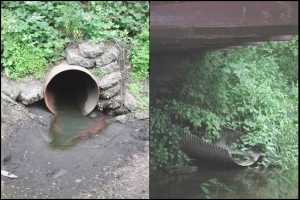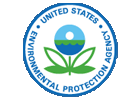PRESS RELEASE****PRESS RELEASE****PRESS RELEASE
ROSEMERE NEIGHBORHOOD ASSOCIATION SETTLES LANDMARK ENVIRONMENTAL JUSTICE CASE AGAINST EPA’S OFFICE OF CIVIL RIGHTS
Contact: Ralph Bloemers, Crag Law Center Tel. (503) 525-2727
Contact: Dvija Michael Bertish, Rosemere Neighborhood Association, Tel. (360) 281-4747
www.crag.org , www.rosemerena.org
(March 22, 2010) Judge Benjamin H. Settle, US District Court of Washington, entered a Stipulated Judgment in favor of the Rosemere Neighborhood Association on March 19, 2010. Rosemere is a non-profit community organization based in Clark County, Washington dedicated to environmental protection and improving the status of environmental justice communities. In entering the judgment, Judge Settle approved the final Settlement Agreement between Rosemere and EPA that concludes a seven year stretch of administrative Title VI complaints and litigation.
In February 2003, Rosemere first filed a Title VI administrative complaint with EPA’s Office of Civil Rights (”OCR”) alleging that the City of Vancouver, WA had discriminated in the provision of municipal services in violation of the Civil Rights Act of 1964. Rosemere alleged that Vancouver failed to use EPA funds to address fairly long-standing problems in low-income and minority neighborhoods in West Vancouver.
Soon after, the city of Vancouver began an investigation into the internal operations of Rosemere and then revoked Rosemere’s status as a “recognized” neighborhood association. The city also stripped the neighborhood of its historical name, actions later deemed “suspicious” by EPA in an investigative report. Rosemere filed a second Title VI complaint with the EPA in December 2003 alleging retaliation by the city of Vancouver. Rosemere filed suit against EPA on two separate occasions citing EPA’s failure to accept, investigate, and issue findings on Rosemere’s complaints. Each time, EPA responded to Rosemere only after the litigation was filed and EPA sought to dismiss the cases as “moot.”
In September 2009, the Ninth Circuit reversed the District Court’s ruling to dismiss Rosemere, citing EPA’s “consistent pattern of delay.” The appellate court substantiated the claim that Rosemere is in “realistic danger of sustaining a direct injury as a result of the agency’s [EPA's'] disregard of its own regulations.” Chris Winter, an attorney with the Crag Law Center, a Portland-based public interest law firm, represented Rosemere in all three cases against the EPA. “For years, EPA’s Office of Civil Rights ignored civil rights complaints from all across the country. This case sheds light on a long-standing national struggle for justice.”
Dvija Michael Bertish, Rosemere’s Director of Environment and Conservation, said “We will continue to push the Office of Civil Rights to do the job it was supposed to do years ago, and insist that EPA clean up its act.” In the Settlement Agreement, EPA’s Office of Civil Rights admits that its actions were unlawful when it failed to process Rosemere’s complaint of retaliation against the City of Vancouver. The Stipulated Judgment and Settlement Agreement require the EPA to take action on any additional Title VI complaints submitted by Rosemere over the next five years in accordance with regulatory timelines. The Stipulated Judgment and Settlement Agreement also require EPA to report quarterly to the Rosemere Neighborhood Association for the next five years and specifically track the status of all Title VI administrative complaints submitted to and investigated by EPA.
To view documents, click on these links:
Stipulated Judgment Rosemere v EPA
Signed Settlement Agmt Rosemere v EPA
Ninth Circuit Court Decision Rosemere v EPA
















![Washington State Water Quality Assessment [303(d)] Washington State Department of Ecology](http://www.rosemerena.org/home/wp-content/uploads/2009/03/ecy_logo.gif)

